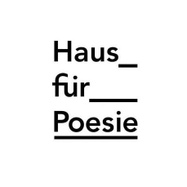WRITING CLASS – You can´t poet this
In the organizer's words:
Kuppelhalle
Writing Class deals with classism, which has been discussed in the German-language literary discourse of the last decade primarily with reference to various forms of the biographical essay. This evening, for the first time, we are bringing some of the positions of the debate on classism, which has also been taking place in international poetry for years, to the big stage. We have invited four poets who deal with the topic in very different ways:
Veronika Dianišková (born 1986) is a Slovakian poet who has published four volumes of poetry, the most recent of which was "Zmena skupenstva" (roughly translated: Change of the Aggregate) in 2023. Dianišková worked for a long time in the social sector, particularly in facilities for homeless people. Her third volume of poetry, "Správy z nedomovov" ("News from Outside"), was created in 2017 as a direct result of her experience and contact with the people there. She writes: "These poems are about people who have nowhere to go or live right on the street, and generally don't know what that means - home." Her collection of poems has been praised for its cross-genre boldness and has been likened to social reportage as it takes on a partly documentary character (many of the poems are "self-portraits" in the first person singular).
The British poet Fran Lock (born 1982) has published 13 volumes of poetry to date, most recently "Hyena!" (Poetry Bus Press 2023) and "a disgusting lie': further adventures through the neoliberal hell-mouth" (Pamenar Press 2023). In her texts and essays, Lock repeatedly deals with the topic of class; in 2021 she published the anthology "The Cry of the Poor - An anthology of radical writing about poverty". She is particularly opposed to the appropriation of the term "working class" by the so-called elites, what she calls "cynical copy-paste poverty porn". In her poem "On Ventriloquism", she subversively and wittily reckons with this kind of patronizing appropriation: "And you say / you know me, you've poeted me, sifted / my bitter statistics like loose-leaf tea." ("And you say, you know me, you've poeted me, sifted / my bitter statistics like loose-leaf tea.") Lock's texts follow a resistant poetics that she says stems from the pagan roots and dark, wild landscapes of her childhood.
The poems by Radmila Petrović (born 1996 in Užice, Serbia) in the volume "Meine Mama weiß, was in der Städte vor sich geht" (Voland & Quist 2023, translation: Philine Bickhardt and Denijen Pauljević) take their readers into a rural, brutal world of drunken courtyards, a world of neighborhood feuds and squeezed pig greaves. "This village is like that", she writes in the text "Molehills", "you can feel its eyes on your skin here you trade with bat wings and have accidents in front of the supermarket". It is a world ruled by men, in which the birth of a daughter is perceived as a defeat. Being a woman is worse than being a dog, it says at one point, at another: "girls who are born like this / don't know the gods." Petrović describes herself as an adolescent girl, a loner out of necessity, who carries the curse of the forest within her and loves "guns, diggers and the hammer". She belongs to the field, she writes, "where our neighbors have always buried / a rotten egg on our side of the field border".
Zheng Xiaoqiong (born in 1980 in the southwest Chinese province of Sichuan) became famous overnight when she was awarded the Liqun Literature Prize in 2007. Until then, she was an unknown quantity in Chinese literary life. She wrote her first poems when she came to the county-free city of Dongguan (in Guangdong province) as a migrant worker in 2001 and worked there for six years in a metal goods factory. The experiences from this time became the subject of her literature in the cycle "The Book of Women Workers". Zheng Xiaoqiong tells of the inhumane everyday life in the factories, of working in the dispatch ports, on the wire-cutting machines and on the assembly lines under the "static noise of the ceiling lights". It is committed literature that gives a voice to the losers of globalized capitalism. In addition to factory workers, her heroines include canteen workers and prostitutes, and the language she finds for the everyday lives of these people has introduced a completely new tone to contemporary Chinese poetry: "lodged in the body / is a high-powered machine that drills a hole in time / for which it uses up its strength, its youth, oh yes, that produces / a false fat life for you."
Moderation: Christian Filips
The event will be interpreted into English and German. With the kind support of ECHOO Konferenzdolmetschen
Project management: Jutta Büchter
With: Veronika Dianišková, Fran Lock, Radmila Petrović, Zheng Xiaoqiong
Supported by:
Slovak Literary Center, Traduki. The poesiefestival berlin is a project of the Haus für Poesie in cooperation with silent green Kulturquartier and the Akademie der Künste and is funded by the Hauptstadtkulturfonds.
This content has been machine translated.Location
Organizer














